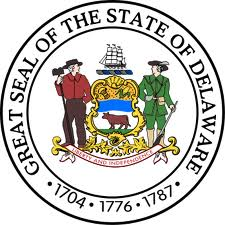Delaware Initiative to Steer Low-Income Students to Top Colleges
The State of Delaware and The College Board announced that they are joining forces to “to ensure high school students statewide are best equipped for the college application process.”
 As part of this partnership, the College Board will begin this month to send specialized information packets to low-income students who scored well on the SAT and college entrance exams.
As part of this partnership, the College Board will begin this month to send specialized information packets to low-income students who scored well on the SAT and college entrance exams.
This endeavor is inspired by the research of Stanford Professor Caroline Hoxby. She has released two studies this year that have shown that relatively few high-achieving, low-income students attend highly-selective universities. She found that only 34 percent of high-achieving, low-income high school seniors attended any of the country’s 238 most selective colleges. These students are often unaware of available financial aid and are unlikely to have had a mentor who attended a selective university, leaving them without positive examples. However, when sent such information packets as the College Board is now mailing, these students were far more likely to apply to a university that was a good academic fit.
released two studies this year that have shown that relatively few high-achieving, low-income students attend highly-selective universities. She found that only 34 percent of high-achieving, low-income high school seniors attended any of the country’s 238 most selective colleges. These students are often unaware of available financial aid and are unlikely to have had a mentor who attended a selective university, leaving them without positive examples. However, when sent such information packets as the College Board is now mailing, these students were far more likely to apply to a university that was a good academic fit.
According to a research partnership between the state and a Harvard University group, in Delaware about 18 percent of students who meet the SAT college benchmark of 1550, which gives students a 65 percent chance of making a first-year college GPA of 3.0, a B, don’t enroll in any college, two-year or four year. As Matthew Albright of The News Journal points out, “The number is even higher among low-income students. Of students who qualify for free or reduced-price lunch, 27 percent who meet the college benchmark don’t take part in any higher education.”
As we’ve discussed before on this blog, the benefits to high-achieving, low-income students who attend elite schools are numerous because, at the very least, such institutions have more resources, spend more per student, have higher and timelier graduation rates, and cost less for low-income students to attend. For low-income, high-achieving high school students, the rewards of attending a selective college or university can stretch well beyond graduation, affecting such things as exposure to greater postgraduate opportunities and overall earnings.
More than 2,000 students are expected to receive the packet from the College Board, which includes information about colleges, admission and financial aid policies, the variation in graduation rates at different colleges, and application fee waivers. A group of prestigious schools, including the Ivy League, MIT, and Stanford, are also sending letters to tell the students receiving them that they are eligible candidates for admission and to encourage them to apply. The packets will also have letters from Governor Markell and Secretary of Education Mark Murphy congratulating the students on their success.
David Leonhardt of The New York Times writes:
Because Delaware is a small state, with only about 9,000 high school seniors, the new program applies to relatively few students: about 80 who are candidates for admission to elite colleges, and an additional 300 with grades and test scores high enough to be admitted to other four-year colleges. But officials say they hope the model encourages larger states to take similar steps.
If this proves to be a successful model, we echo that hope. We have always encouraged students to think big when it comes to deciding where to apply to college, and we applaud other organizations, initiatives, and colleges trying to help them do so.